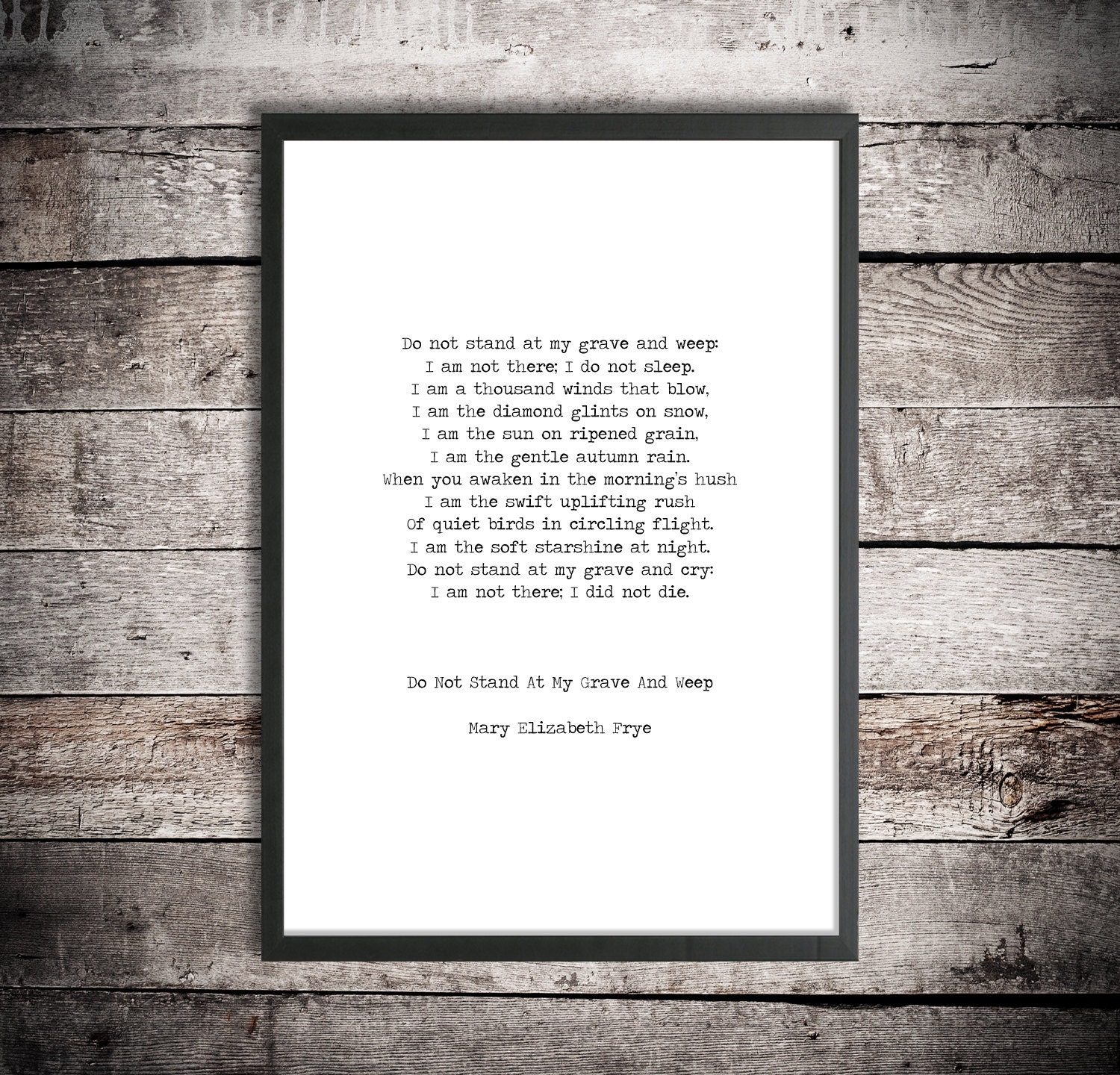

Words cannot return people, but they can show death as the birth of a new life. Her Jewish roommates mother had fallen ill and passed away in Germany, and her roommate was distraught over being unable to go back and be there for her/mourn at her grave due to the rising unrest in Germany at the time. Where do our dearest people disappear after death? “I am a thousand winds that blow. This was the first poem Mary Elizabeth Frye ever wrote, and she wrote it on a grocery bag. In fact, an American housewife, passionate florist, and avid reader, Mary Frye wrote several tenths of poems. She could be called an author of one poem. It gave them a chance to get rid of the feeling that, if a human life could be interrupted so suddenly and so cruelly, it has no meaning at all. Mary Elizabeth Frye Do not stand at my grave and weep analysis Mary Elizabeth Frye was a unique author. Yet the name of the author remained unknown to almost all the people who sought consolation. I do not sleep” could be heard for more than 75 year, on thousands of funerals.

The line “Do not stand at my grave and weep I am not there. I am in a thousand winds that blow, I am the softly falling snow. The simple words of consolation, alluding to the Bible, really helped people to go through a loss. Do not stand at my grave and weep, I am not there, I do not sleep. The person, for whom the poem was composed, was a Jewish girl who had not been able to see her dying mother in Germany because of anti-Semitic unrest. The poet herself could very well understand these feeling, as she lost her own mother at the age of three. I am not there I did not die.The poem “Do Not Stand at My Grave and Weep”, composed in the state of creative irradiation, had a certain aim: Mary Frye wanted to help a girl to go through a terrible loss, the loss of her mother. When you awake in the morning hush, I am the swift, uplifting rush Of quiet birds in. Mary Elizabeth Frye, an American housewife and florist, wrote it in 1932.Ī while back I created this image for Pinterest, For everyone who has ever lost anyone, I share this with you: Mary Elizabeth Frye, American Housewife and Florist, 1905 – 2004 by Mary Elizabeth Frye (1905-2004) Do not stand at my grave and weep I am not there. In the spirit of hope I share a poem I first encountered in 1989 when my brother died of cancer.Īt the time the author was unknown, but has since been identified. Home » Pause and Revitalize » Pause and Revitalize #25: Do not stand at my grave and weep Pause and Revitalize #25: Do not stand at my grave and weep DecemBy irisabbeyĪs the year winds down, In Memoriam lists crop up to remind us of life’s fragility.


 0 kommentar(er)
0 kommentar(er)
